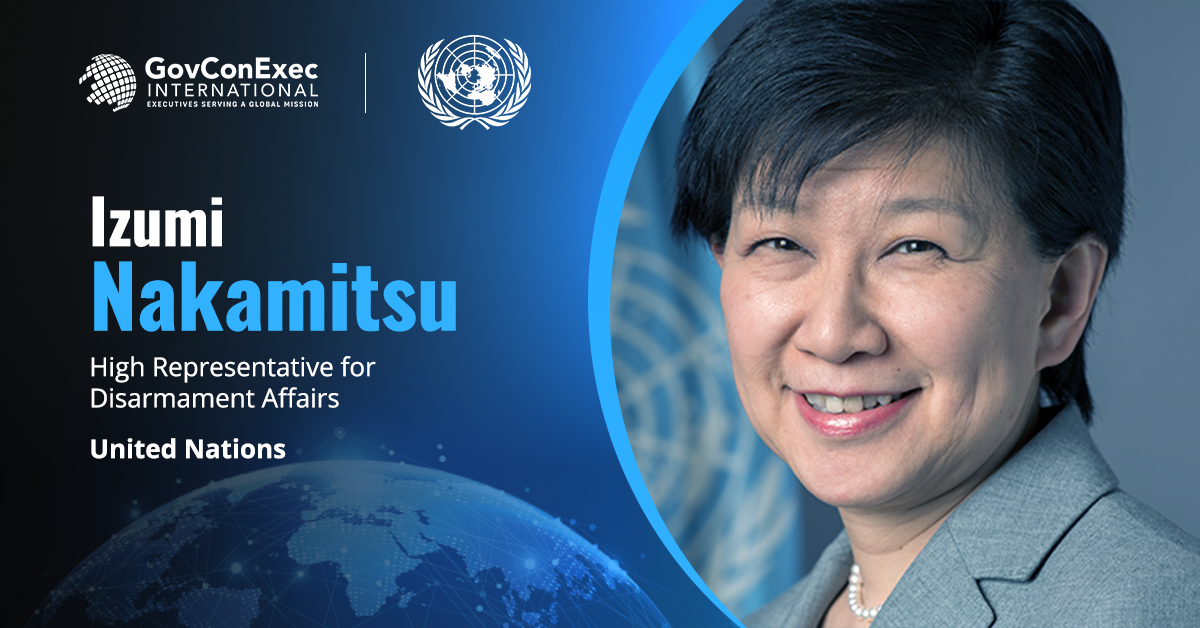Secure solutions provider IDEMIA Public Security has named Vincent Bouatou its chief technology officer and head of its international CTO office. Bouatou brings over 20 years of experience to his new role, helping him steer the company’s cybersecurity strategy, technical governance initiatives and artificial intelligence development leadership. He most recently served as IDEMIA Public Security’s...
Author: Brianne Monterey (Brianne Monterey)
Kongsberg Maritime to Provide Propulsion for Peruvian Frigate
Norwegian marine equipment manufacturer Kongsberg Maritime has secured a contract from Peru to deliver controllable pitch propeller systems for its frigate program. The Norwegian company will work with South Korean shipbuilder HD Hyundai Heavy Industries and state-owned SIMA Peru, both tapped by the Peruvian government to build the new warship. The vessel will be based...
MDA Space Names Finance Veteran as New CFO
Finance veteran Guillaume Lavoie has joined MDA Space as chief financial officer, effective immediately. Lavoie comes into his new role with more than 20 years of financial experience, specializing in strategic and financial planning, investor relations, and mergers and acquisitions. A chartered professional accountant in Canada, he recently served as executive vice president and CFO...
Northrop-Exence E-2D Partnership Seeks to Empower Poland’s Command and Control Capabilities
Northrop Grumman is partnering with Polish IT services provider Exence and the Polish Air Force Institute of Technology to help expand the command and control capabilities of Poland’s armed forces while ensuring interoperability with NATO and other allies. The collaboration will explore how the Northrop E-2D Advanced Hawkeye tactical airborne early warning aircraft could be...
BAE Systems to Deliver 40 Mk4 Naval Gun Systems to Dutch, Belgian Navies
British defense contractor BAE Systems will deliver eight Bofors 40 Mk4 naval gun systems to the Netherlands and Belgium under a new contract from the Dutch Command Materiel and IT, an agency under the Dutch Ministry of Defence. Stefan Lofstrom, marketing and sales director at BAE Systems Bofors, said the new deal allows the company...
Eve Air Mobility to Launch Embraer-CAE-Led eVTOL Training Program
Brazilian electric vertical takeoff and landing aircraft manufacturer Eve Air Mobility has selected Embraer-CAE Training Services to lead training initiatives related to its concept eVTOL aircraft. The aircraft will be offered as part of the Eve TechCare all-in-one service portfolio. The Embraer-CAE joint venture will deliver a training program for pilots, maintenance professionals and ground...
Disarmament Organizations List Benefits, Concerns Over Access to AI, Other Emerging Technologies
Representatives of United Nations-adjacent disarmament agencies have highlighted the benefits of and concerns over the accessibility of artificial intelligence, unmanned systems and other emerging technologies. On the sidelines of a recent meeting of the United Nations General Assembly’s First Committee, Hong Li of the Organization for the Prohibition of Chemical Weapons highlighted how large language...
Nokia to Spearhead Efforts to Explore Possible 6G Use Cases
The European Smart Networks and Services Joint Undertaking has tapped Finnish telecommunications solutions provider Nokia to lead the SUSTAIN-6G lighthouse project, a European Commission-funded initiative to identify ways 6G could provide a better future. Under the deal, the Espoo, Finland-based firm will lead a group of innovators to explore potential uses of the next-generation telecom...
Joint US-South Korea Science and Technology Partnership to Help AUKUS Pillar 2
South Korea and the United States are forming a new vice-minister-level joint defense science and technology executive committee to advance emerging technologies and prepare the East Asian nation for participation in Pillar 2 of the AUKUS trilateral security partnership. South Korean Minister of National Defense Kim Yong-hyun announced the proposed committee while he was in...
Australia Taps Thales, Lockheed Martin to Enhance Local Defense Manufacturing Capabilities
The Australian government is collaborating with Thales and Lockheed Martin to boost domestic defense solutions manufacturing. On Wednesday, the Ministry of Defence announced that the Albanese government has tapped Thales to build, establish and commission a 155-millimeter M795 artillery ammunition facility in the country. The factory, to be built at the Benalla Munitions Facility, is...











